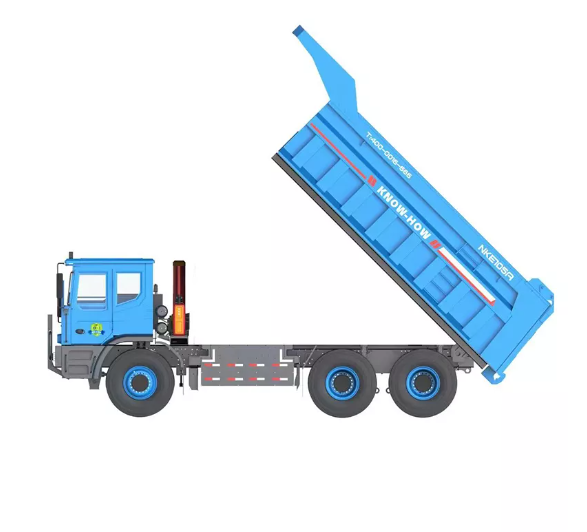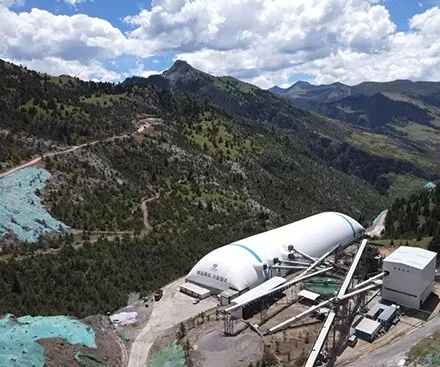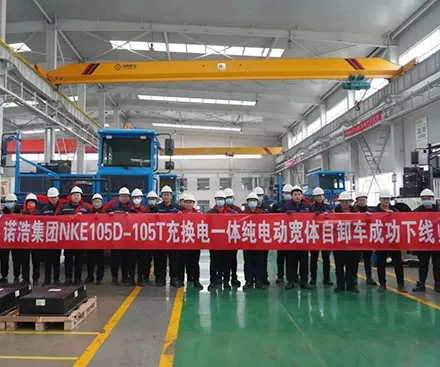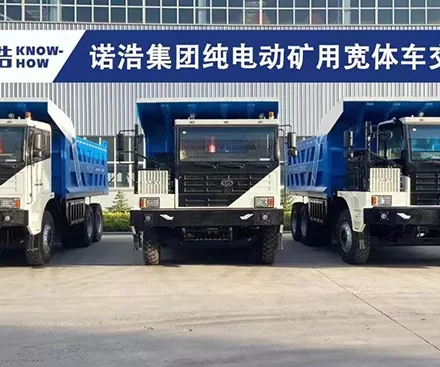As global mining operations evolve to meet stricter environmental standards and improve operational efficiency, electric vehicles especially electric dump trucks are rapidly becoming essential assets. In 2025, the 70-ton electric dump truck category is gaining momentum among open-pit mines due to its balanced payload, lower emissions, and economic advantages.
This article explores the best 70-ton electric dump trucks available in 2025, industry trends driving the transition, and what mining procurement professionals should consider before investing in this segment.
The 70-ton segment hits the sweet spot between massive haul trucks and mid-size loaders. It is widely used in open-pit mining because of:
Operational flexibility for medium to large mining sites
Strong cost-to-payload ratio
Ease of fleet scalability
Lower road wear compared to ultra-class trucks
With battery and motor technologies advancing, electric models in this class are now comparable or even superior to diesel in performance and reliability.
Electric dump trucks have come a long way in recent years. In 2025, fleets are adopting them not just for sustainability goals, but because they can offer:
Lower fuel and maintenance costs
Reduced TCO (Total Cost of Ownership)
Compliance with zero-emission regulations
Improved productivity through regenerative braking and smoother operation
Battery technologies such as Lithium Iron Phosphate (LFP) and T-type modular batteries are increasing in capacity and safety. Many OEMs now offer electric dump trucks with 400–700+ kWh battery packs optimized for high-load and long-haul cycles.

If you're evaluating electric trucks for open-pit mining, here are key criteria to focus on:
Battery Capacity & Chemistry
Look for battery capacities between 500–700+ kWh for full-shift operations.
LFP batteries are currently the most reliable for safety, heat tolerance, and longevity.
Consider battery swapping capability if you operate in remote areas with charging limitations.
Drive & Powertrain
Dual-motor drive systems offer better torque and responsiveness.
Regenerative braking helps recharge the battery and reduce wear.
Suspension & Steering
Heavy-duty front hydro-pneumatic suspensions and balanced rear systems enhance control and ride comfort.
Full hydraulic steering is a must for tight, obstacle-laden mine sites.
Terrain Optimization
Choose models that perform well on steep grades, loose or wet surfaces, and high-altitude sites.
Payload optimization and traction control are critical features for productivity.
While many manufacturers have entered the 70-ton electric dump truck space, the following models have gained attention for their build quality, durability, and field performance.
A standout configuration includes a 70-ton electric dump truck equipped with a 528kWh CATL LFP battery, dual motor drive, full hydraulic steering, and charging + battery swap dual mode. This model is especially suited for steep and rugged open-pit sites, offering:
Up to 105 tons gross weight
Long mileage range
Excellent hill-climbing power
Compatible with fast or swap charging
This kind of configuration supports efficient operation in remote areas, especially where electrification infrastructure is still developing.
For operations with longer haul roads and fewer charging opportunities, models with 724kWh battery capacity offer extended operation hours without mid-shift downtime. Features often include:
Dual-circuit drum air brakes
Leaf spring + balance shaft rear suspension
Hydro-pneumatic front systems
Regenerative braking and enhanced safety controls
Many mining companies are driven by ESG goals, investor expectations, and regulatory pressure. Electric dump trucks significantly reduce:
Carbon emissions
Noise pollution
Particulate matter
They also align with initiatives such as the Zero Emission Mining Initiative, making them attractive not just from an operational, but also a strategic standpoint.
While electric dump trucks come with higher upfront costs, their operational savings often offset the investment in 3–5 years. Here's how:
| Expense Category | Diesel Truck | Electric Truck |
|---|---|---|
| Fuel Cost | High | ~70% Lower |
| Maintenance | High | ~30–50% Lower |
| Downtime | Frequent | Reduced |
| Lifespan | Shorter | Longer |
Mining firms that switch to electric fleets often find improved cost-per-ton moved and better fleet reliability.
When planning to adopt electric dump trucks, site infrastructure must evolve to support:
High-voltage charging stations
Battery swapping depots (if applicable)
Load-balanced grid integration
On-site service teams for electric systems
Some manufacturers also offer fleet monitoring systems with predictive maintenance, remote diagnostics, and energy consumption dashboards.
To make informed decisions, procurement teams should ask:
What is the rated and real-world payload for rugged mining conditions?
Is the truck compatible with my existing charging/swap infrastructure?
What is the actual runtime under a full payload?
What kind of support and warranty is available?
Are parts readily available, especially for critical components like BMS and motors?
Battery modularization: Easier repairs and upgrades
Intelligent powertrain control: Optimizes energy per terrain
Telematics and fleet management: Real-time tracking of performance, range, and wear
Financing & leasing models: Lower upfront investment barriers
The 70-ton electric dump truck segment is one of the most promising areas in heavy-duty electrification, especially in open-pit mining. Operators are no longer asking if they should switch, but when and how quickly.
By evaluating performance specs, battery options, terrain compatibility, and infrastructure readiness, mines can make a smooth and profitable transition to electric fleets in 2025.
For those seeking reliable, field-tested models, several manufacturers, as Know-how, now offer 528kWh to 724kWh battery-powered dump trucks optimized for various mining conditions.

Jul. 23, 2022
View More
Jun. 15, 2022
View More
Jun. 01, 2022
View More